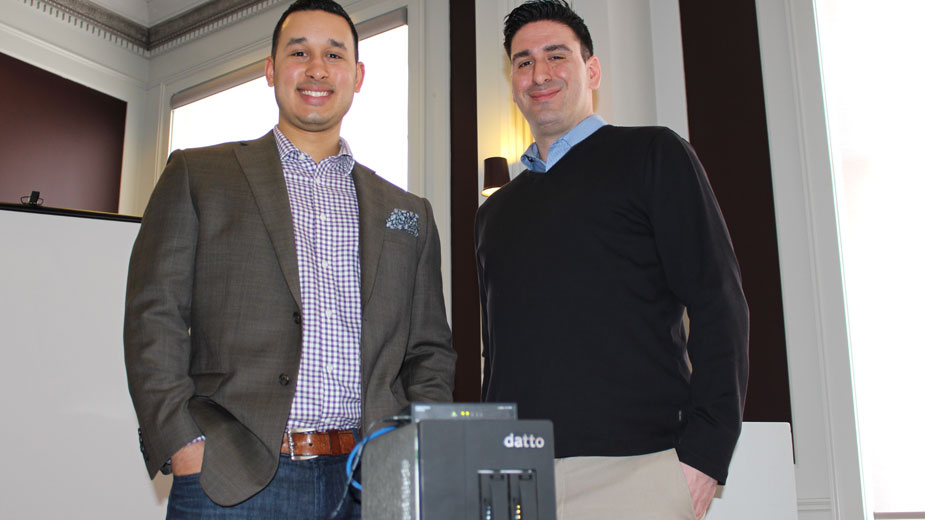Data Backup Crucial for Businesses Big and Small
YOUNGSTOWN, Ohio – In February, Hollywood Presbyterian Medical Center in Los Angeles was hit by a ransomware attack. Hackers infected its computer system and locked out users, demanding $3.6 million to allow employees access to the system.
It’s not just big organizations that can be hit. A business of any size is at risk of human error – one of the most common ways data are lost or fall in to the wrong hands – said Datto sales executive George Caban Tuesday at the Better Business Bureau’s “Lunch & Learn” session.
More often than natural disasters or fire or burst pipes, it’s employees who put data in jeopardy to malicious links. They to do by opening a seemingly routine email or inadvertently deleting files.
“A study found that there’s generally at least one person at every business that will click on anything you send them,” Caban explained to the luncheon audience. “It’s very simple for businesses to fall into a phishing scam because of that.”
In his presentation, Caban put up a screenshot of a CryptoWare warning similar to what the Hollywood medical center would have seen.
“When we put up the screen what can pop up, I saw a lot of nodding,” added Mark Richmond, president of Micro Doctor in Warren. “That tells me that more and more people are seeing this kind of thing out there.”
In many cases, one point of backup isn’t enough. May businesses use either a local or cloud backup, Caban said, not realizing that it isn’t sufficient. Datto, a backup service based in Norwalk, Conn., with servers in Pennsylvania and Utah, provides a medium between the two. A local copy of data is kept on a server at the site while a second version is kept on Datto’s servers.
The advantage, he explained, is that a business doesn’t have to stop when data are lost or workers are locked out.
“The benefit of doing [hybrid backup] is that you can recover data in any number of ways within minutes,” he said, rather than wait for someone to fully restore a system. “Employees can keep working because there’s no downtime.”
In the case of infection, backups can let a businesses revert to using data created before its system was compromised, effectively erasing the virus.
Even if a business isn’t using Datto’s systems, Caban continued, some sort of backup should be available. The average employee loses between 17 and 18 hours of production every year because of downtime that results from viruses or file deletion, Richmond added, a figure that can add up quickly.
“If you have 30 people working for you and are losing 18 hours [each] a year from them, that’s a pretty significant bill,” he said. “For just a couple hundred dollars a year, we can protect you and your data, as well as have you back up and running in no time.”
In an ideal setting, files should be backed up hourly, noted Datto sales engineer Dan Ciccone. Datto’s systems can automatically backup information as often as every five minutes.
“If you only do it once a day, then you run the risk of losing a whole day of work,” he said.
As technology has improved, Richmond and Caban noted, the cost of data backup has dropped, easing some of the burden on businesses. At Micro Doctor, services start at $20 per month. Regardless of price, Datto’s Caban said, the cost of paying for offsite data storage is often less than the lost productivity from losing everything.
“[Downtime costs] get excessive quickly. Even for a small business with just four or five employees, the cost is directly associated with the solution you have in place,” he explained. “If you use local-only or cloud-only and something goes wrong, the costs can exceed the IT budget for a year.”
Pictured: George Caban and Dan Ciccone are sales executives for Datto, a data backup service based in Connecticut.
Copyright 2024 The Business Journal, Youngstown, Ohio.



